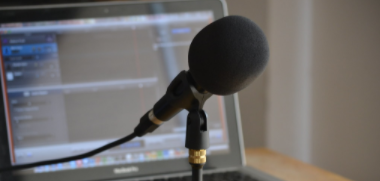
This role has a moderate level of AI exposure. AI can enhance efficiency for some tasks, but this job still relies on human skills and decision-making.
Explore all careersA Music Editor edits recordings, ensures quality for publishing, makes song adjustments, and collaborates with the team during production.
Get qualified to work as a Music Editor with a course recognised across Australia. Speak to a training provider to learn more.

In Australia, a full time Music Editor generally earns $1,380 per week ($71,760 annual salary) before tax. This is a median figure for full-time employees and should be considered a guide only. As you gain more experience you can expect a potentially higher salary than people who are new to the industry.
 Courses.com.au Team
Courses.com.au Team
Employment opportunities in this industry have remained stable over the last five years. There are currently 7,000 people working as a Music Editor in Australia. Music Editors usually work in larger cities and towns.
Source: Australian Government Labour Market Insights
 Courses.com.au Team
Courses.com.au Team
If you’re planning a career as a Music Editor you could enrol in a Diploma of Music Industry. This course will help you develop techniques for composing, arranging, recording, mixing and performing music. You could also consider a Certificate IV in Music Industry.
 Courses.com.au Team
Courses.com.au Team
Browse occupations related to Music Editor



If you are looking to embark on a career as a Music Editor, then exploring the Music Editor courses in Gladstone is a great start. In this vibrant town, aspiring music professionals can find diverse educational opportunities tailored to equip them with the essential skills. With a scenic backdrop, studying music production while enjoying the local culture can be incredibly inspiring and fulfilling.
The primary course available is the Certificate III in Music (Sound Production) CUA30920. This vocational education and training (VET) course is designed for beginners, offering foundational knowledge and practical skills for those with no prior experience. Gaining these qualifications can open doors to a variety of exciting roles in the music industry, making it a pivotal step towards becoming a proficient Music Editor.
Upon completion of the course, there are several related job roles you may want to consider. For instance, you might be interested in becoming a Production Manager, overseeing the logistical aspects of music production, or taking on the role of an Audio Visual Technician, responsible for managing sound and visual equipment at events. Other related professions include Sound Engineer, Musician, and Music Manager.
Exploring the broader fields of study linked to the Creative Arts, Fashion and Music courses can further enhance your skills and job prospects. Delving into more specialised domains such as Music itself can greatly complement your education in music editing. With strong networks being a significant asset in the creative industry, understanding these various niches could be beneficial.
By choosing to pursue Music Editor courses in Gladstone, you are setting the stage for a vibrant and creative career. The local music scene provides a rich environment for applying your skills, while the education offered equips you for diverse career paths including Music Publisher, Music Producer, and Audio Engineer. Start your journey today and unleash your potential in the music industry.